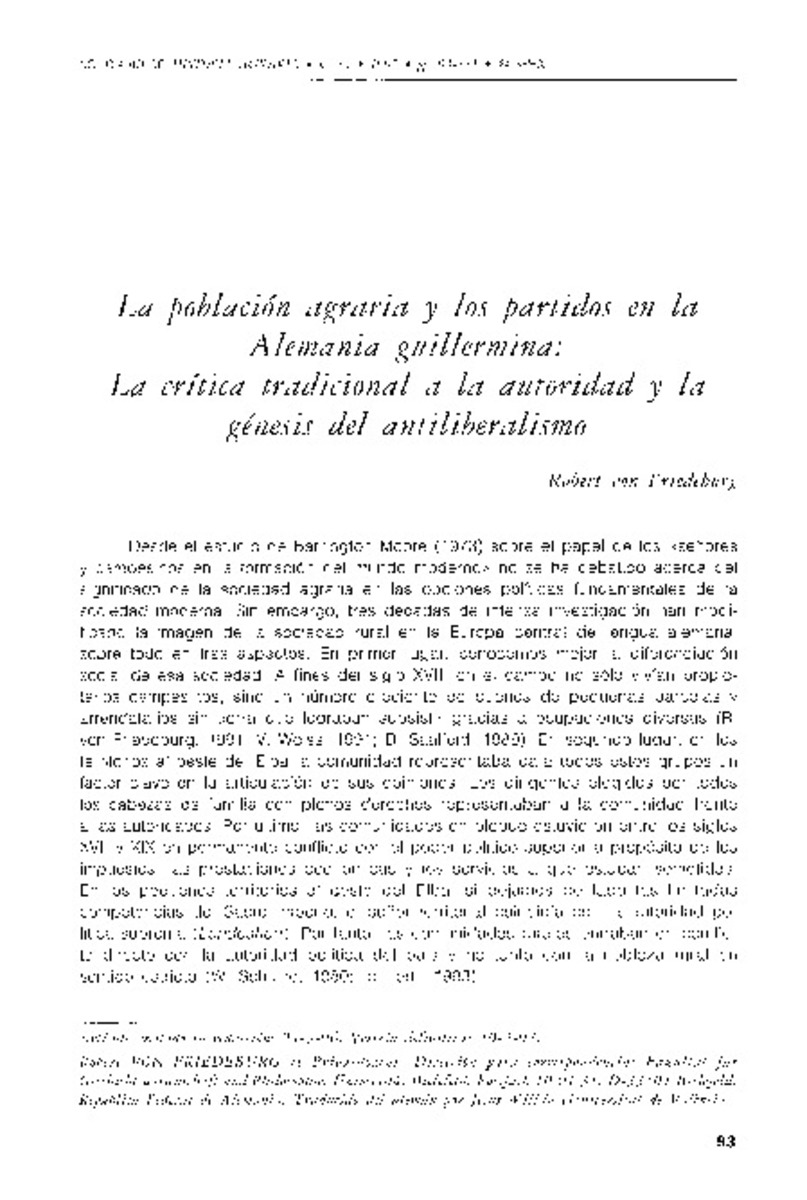Mostrar el registro sencillo del ítem
La población agraria y los partidos en la Alernania guillermina: La crítica tradicional a la autoridad y la génesis del antiliberalismo
| dc.contributor.author | von Friedeburg, Robert | |
| dc.date.accessioned | 2016-07-11T16:47:48Z | |
| dc.date.available | 2016-07-11T16:47:48Z | |
| dc.date.issued | 1997-12 | |
| dc.identifier.issn | 1139-1472 | |
| dc.identifier.uri | http://hdl.handle.net/10234/161606 | |
| dc.description.abstract | The author analyses Barrington Moore’s approach to totalitarianism origins based on aggrading interests and structures- in the light of recent approaches lo the agrarian Germany in the XIX and XX centuries. The author compares the different regions and suggests that some traditions of rural mobilization, supported by specific local organizations resulted in the rise of Ihe Nazi policy. | ca_CA |
| dc.format.extent | 39 p. | ca_CA |
| dc.format.mimetype | application/pdf | ca_CA |
| dc.language.iso | spa | ca_CA |
| dc.publisher | Sociedad Española de Historia Agraria (SEHA) | ca_CA |
| dc.relation.isPartOf | Historia agraria: Revista de agricultura e historia rural, n. 14, 93-131 | ca_CA |
| dc.rights | © SEHA | ca_CA |
| dc.rights.uri | http://rightsstatements.org/vocab/InC/1.0/ | * |
| dc.subject | German social agrarian history | ca_CA |
| dc.subject | Nazism | ca_CA |
| dc.subject | rural social movements | ca_CA |
| dc.title | La población agraria y los partidos en la Alernania guillermina: La crítica tradicional a la autoridad y la génesis del antiliberalismo | ca_CA |
| dc.type | info:eu-repo/semantics/article | ca_CA |
| dc.rights.accessRights | info:eu-repo/semantics/openAccess | ca_CA |
| dc.relation.publisherVersion | http://www.historiaagraria.com/numero.php?n=14 | ca_CA |







